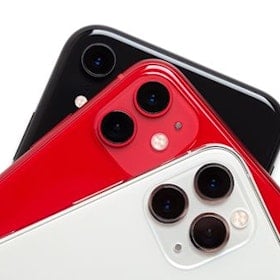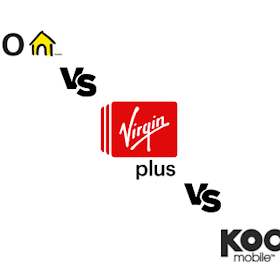Pros
- Bigger screen
- Clever features make the big screen easy to use
- Fingerprint scanner
- Awesome camera
- Great battery life
Cons
- Bigger than other phones with same-sized screen
- Can be buggy – had to reset it on occasion
- Slippery design is hard to hold
Design and performance

The iPhone 6 Plus has its fair share of virtues and vices when it comes to design. Let's begin with the elephant in the room: it’s huge. Even for a 5.5 inch phone it’s big. Compared to the LG G3, which has the same size display, the iPhone 6 Plus is a good 1.2cm taller and even slightly wider. That doesn’t sound like much until you put it in your pocket. It turns out that 1.2cm can make all the difference in the world when it comes to comfort.
The reason it’s so big is because of the huge bezels at the top and bottom of the screen. The bottom side we can understand; that’s where the Touch ID button sits and it has to be there. As for the top, there’s no earthly reason we can think of that it would measure a good 1.6cm with nothing but the phone speaker and a light sensor or two to fill the space.
So, it’s a tall phone. The good news is that the impressively thin 7.6mm profile does its best to reduce any discomfort in your pants. Walking around with the 6 Plus in anything but a pair of skinny jeans feels totally normal; it’s only when you sit down that you’ll get the urge to whip it out to avoid feeling like you have a Kindle in there.

In the hand its size takes a little getting used to, but thanks to Apple’s cleaver double-tap Touch ID function it’s easy to use once you gain a little muscle memory. More on this in a bit.
The rear chassis is smooth. Very smooth. It’s difficult to hold on to if you’re manoeuvring for the side-mounted lock or volume buttons. You could always get a grippy protective case, but then you lose that profile slenderness.
The screen curves towards the edges, making a smooth rounded edge that blends with the sides of the aluminum case. This is comfortable to hold and feels great. There is one drawback, however. Using a case means that dust and dirt builds up in the crevices created between the curved edges and the case itself. This happens surprisingly quickly and has the unfortunate effect of making you look like a grot.

Finally, the rear camera sticks out. If Apple absolutely needed the extra room to provide the (spoilers) fantastic camera on the 6 Plus then we won’t be offended. However, both we and you would have been better served by increasing that profile just a little to provide a bigger battery and a flat back.

A pop-out lens means that it’s more likely to get scratched. On top of that, you now can’t place your phone flat on a table without it rocking about.
The screen itself is pretty good. It’s not as sharp as something like the LG G3 or Oppo Find 7, but the 1080p and 400 pixels per inch (ppi) on the 6 Plus is still better than your standard 326ppi of a Retina display.
Brightness is a treat. You can move between blindingly-bright or super-low and anything in between. It's also one of the least-reflective screens on the market. Using it in direct sunlight on a sunny day is still a little difficult, but you'll be hard-pressed finding a phone where it isn't. Viewing angles are also crazy-good. You can almost get totally side on before you visuals are noticeably changed.

The iOS 8 user interface (UI) will be familiar to anyone coming from iOS 7. Very little has changed in terms of basic operation, with the exception of a few cool features.
One of our favorite additions are the widgets in the drop-down Notification Center. Definitely customize these as soon as you can by scrolling to the bottom and tapping Edit. Some third party apps like Evernote or calendar apps come with built-in support and are very useful. You can also see what the weather is like outside, as well as the forecast for the rest of the day.
The best part about all of this is that, being in the Notification Center, you can just scroll down while in any app and check your info.
Another fantastic addition is the double-tap Touch ID function. In a brilliant display of common sense, Apple’s engineers have realized that not only is the Touch ID button a fingerprint scanner, but is also a touch-sensitive key. Double-clicking it will still get you the multitasker just like it used to, but double-tapping it without pressing it down will bring the whole screen down halfway to let you easily reach stuff at the top.

This is one of the best UI features we’ve ever used. Any controls at the top of the panel, or a URL bar, and even the Notification Center, can all be accessed with ease despite the huge size of the display. No stretching needed. It takes a little while to get used to it, but once you are you’ll be cheering.
Being a Plus-sized phone, Apple has introduced some tablet-esque landscape-mode features for the 6 Plus. Turning your phone sideways while in settings, messaging, email or a bunch of other apps doesn’t just zoom in and turn everything sideways. Instead, you get an extra column off to the side that displays things like your contact list or other settings menus.

Apple has opened up the doors to third party keyboards. To activate one, you’ll need to find it buried within Settings > General > Keyboard > Keyboards and allow it access. Depending on the keyboard you’ve downloaded, you may find that occasionally the default Apple keyboard pops up and replaces your new favorite. To switch back just hit the Globe button on your Apple keyboard and select the one you want from the list that pops up. This is annoying and we hope there’s a fix in the works.

Finally, the 6 Plus is the least-stable iPhone we’ve ever used. It suffers from the kinds of lag and app-crashes and you might expect from an Android, but never from the vertically-integrated, closed-in system from Apple. That’s one of the whole reasons you go with Apple - everything’s so tightly regulated that ‘it just works’.
This time around, we were presented with keyboards with out of place keys, keyboards that wouldn’t open, keyboards that would crash (are you sensing a theme?), and apps that froze. One time the phone just up and reset itself in the middle of a game of 2048 with no warning. With any luck these are all software issues that will be fixed in upcoming iOS 8 updates, but for now we have to say we were surprised.
Overall it was no more buggy than any flagship Android phone on the market, but like we said: the whole appeal of being stuck in a closed system is that it doesn’t suffer from the same problems as an open-source OS. iPhone users may have to get used to the occasional software niggle from now on.
Camera
The camera on the iPhone 6 Plus has to be the best on the market by a long way. This is a seriously good shooter. The addition of optical image stabilization (OIS) means it’s even better than the iPhone 6, which is a shoe-in for the number 2 spot. Be sure to click the images for the original pics in full quality.
Images during the day come out beautifully with almost instantaneous autofocus and shutter speed. But day shots are easy, any old flagship can do that these days. What about once the sun goes down?
Night shots are impressive, too. Especially once you make use of the pre and post editing options. An impressive amount of detail is captured that can be manipulated to get the best pic.

Shots taken in-doors at night are variable. Sometimes they’re fantastic, other times they come out a little grainy but still better than almost any other phone's best attempt. We suggest using the flash to make sure you minimize visual noise. The two-tone flash means that your photos won’t get that weird washed-out look that has plagued phone users for years.

Multiple lighting intensities isn’t a problem, either. Even shooting with the sun directly in the background will still often get you an image with clear colors and detail.
If, for some reason, the automated settings don’t quite nail it, you can tap to focus and then slide your finger up and down to adjust the brightness of the shot. This works very well and is now included on all iPhones that update to iOS 8. It saves you tapping around the screen trying to find the optimum area to focus on, and makes shots that would otherwise be too dull or too bright to bother with simple enough for even the novice user to capture.

A lot of phones like to boast about their image editing features, which end up being largely untouched by the user. Doing this with iOS 8 would be a crime. It’s so easy to tweak a photo once you’ve taken it and make serious improvements with the gentle swipe of a finger.
Battery

The iPhone 6 Plus has rocking battery life, sometimes making a full 2 days between charges if we were careful with usage. Most of the time it didn’t make it past close of business on day number two, but that was with a lot of music streaming over 4G which is a notorious killer of battery life.
Coming from any other iPhone will be an amazing experience. We never once got even close to 20% from a single day’s usage. That’s with hours upon hours of streaming music, leaving the screen on for quite a while by accident after a photo shoot, some light reading and a heavy dose of Facebook and Twitter.
Sporting such a big battery is not without its drawbacks. The iPhone 6 Plus might take a long time to burn its charge, but it also takes a long time to get it back. Charging from a wall outlet takes a couple of hours. Trying to charge straight from a USB is pretty much out of the question - you’d be very lucky to get 20% per hour. It might be a good idea to drop a few bucks on an extra wall adapter for work or your bag if you think you’ll need the occasional top-up.
Managing your battery is pretty easy. iOS 8 has some great statistics built in that show you which apps have used what percentage of your used-up charge over the last 24 hours or 7 days. If you do have any battery issues at least now you’ll know where all your power went.
Verdict

The iPhone 6 Plus is a great phone overall, but with some very non-Apple faults. It’s bulkier than it needs to be, is prone to bugs and keyboard crashes, and is difficult to hold thanks to some questionable design choices.
On the other hand it has some truly great features like the double-tap screen readjustment that makes screen size is no problem for navigation, special landscape treatment in certain apps, and great battery life.
Then there’s that camera. Apple’s cameras used to be miles ahead of the competition, but in recent years the gap has closed. Now it’s opened way back up again. No phone we’ve ever reviewed has had a camera that works as easily and as cleverly as this one, or has had this consistency of quality. If the camera is an important feature for you then you can’t go past this. It’s awesome.
You’ll notice the virtues we’ve mentioned are iPhone 6 and 6 Plus-specific features that aren’t purely reliant on iOS 8. These are reasons to pay top-dollar for the new models, rather than just buy an iPhone 5s and upgrade the software. Often a difficult question to answer with iPhones is “why would I get this one when last year’s costs so much less?” This year the answer is easy: it’s just better. Just make sure you’re comfortable with a phone that may or may not actually fit in your pocket.
Find Better Phones and Plans
Hundreds of cell phone plans unpacked. All the facts. No surprises.









































